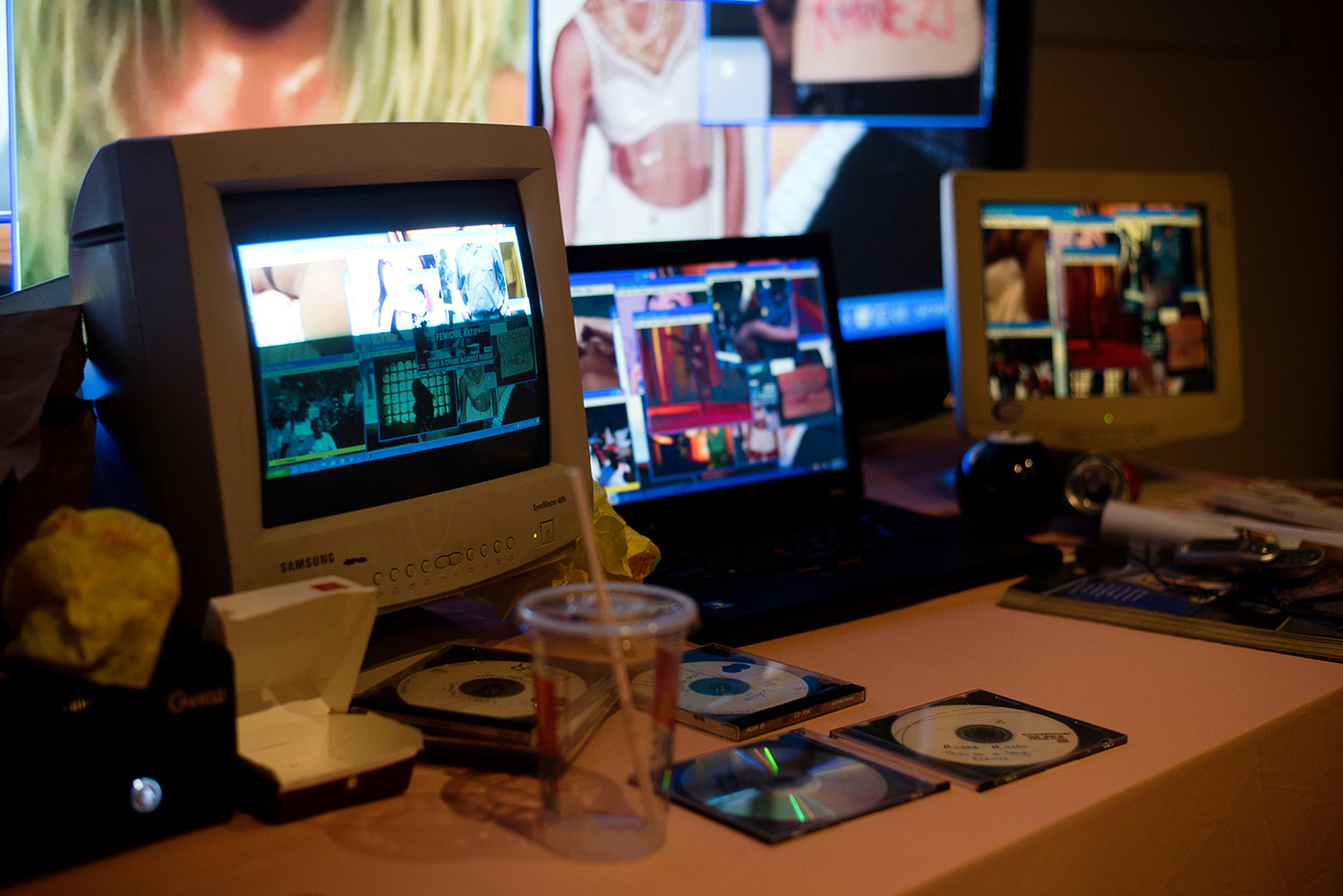The IN:DIALOG series aims to activate ‘wasted’ potential space, through moments of art, performance, workshops & discussions. Each event is contextually grounded, allowing for a site-specific response to form through the development of a temporary architecture in relation to place. The creative team consists of Ilze Wessels (Is Sound Architectures) and artist Nina Erasmus. Conscious of their respective positionality and privilege, “we aim to utilise ourselves as tools to see the growth of others”. The most recent iteration in the series, Gender | Digital, sought to interrogate the ongoing discrimination through the constructs of gender while working towards dismantling them. Thinking through the utopic notion of a “future without gender norms”.
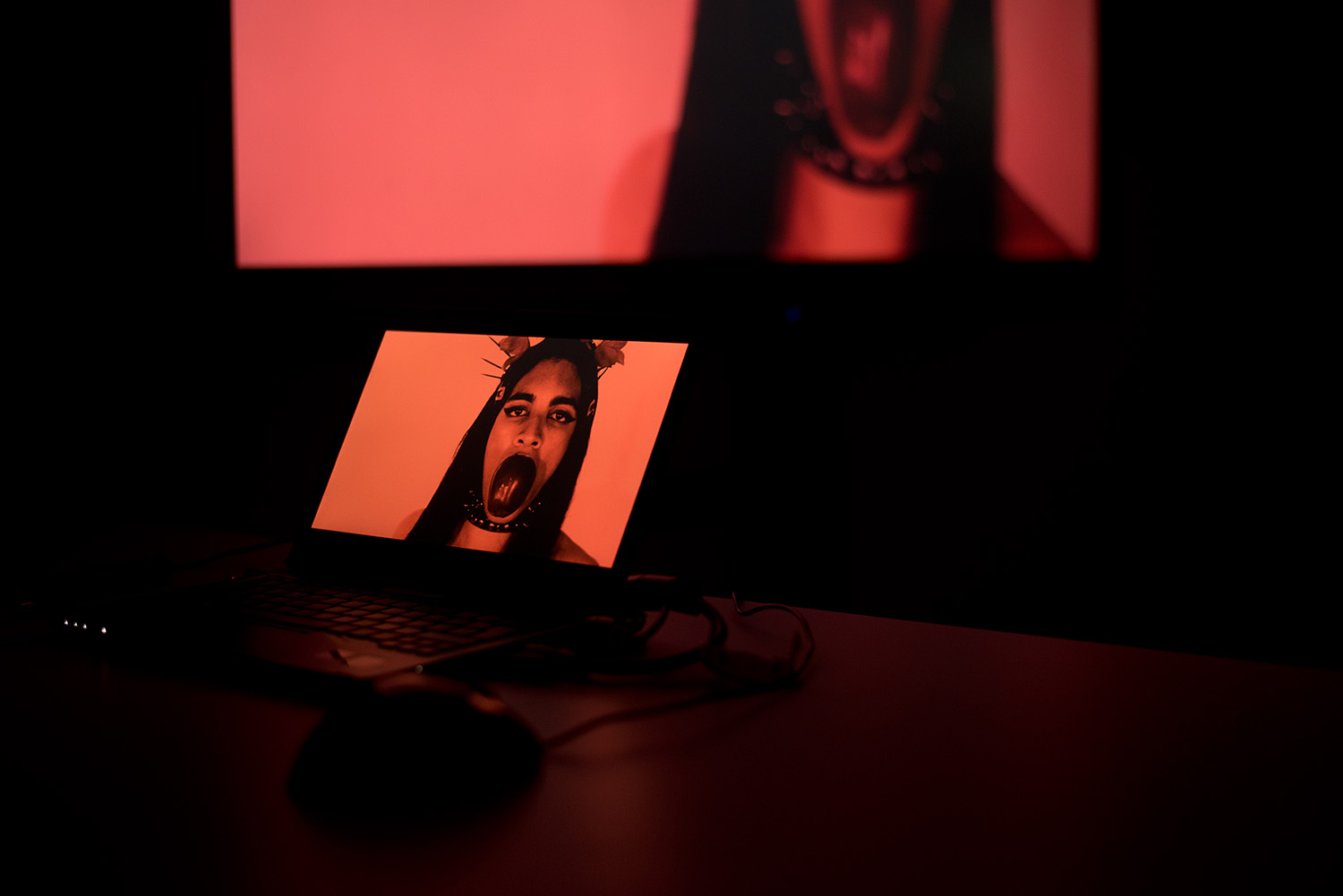
Gender | Digital formed part of Wessels’ Imagination Night at the Goethe Institut– where for the last six months she has been participating as a ‘Hubber’ in the Goethe Cultural Entrepreneurship program. In part prompted by her research and work into digital divides within institutional spaces in South Africa, the event utilised the technological resources available in the space to create augmented and multi-sensory installations. The event included performances by Sibusile Xaba and Thabiso Heccius Pule as well as a library-based collage workshop.
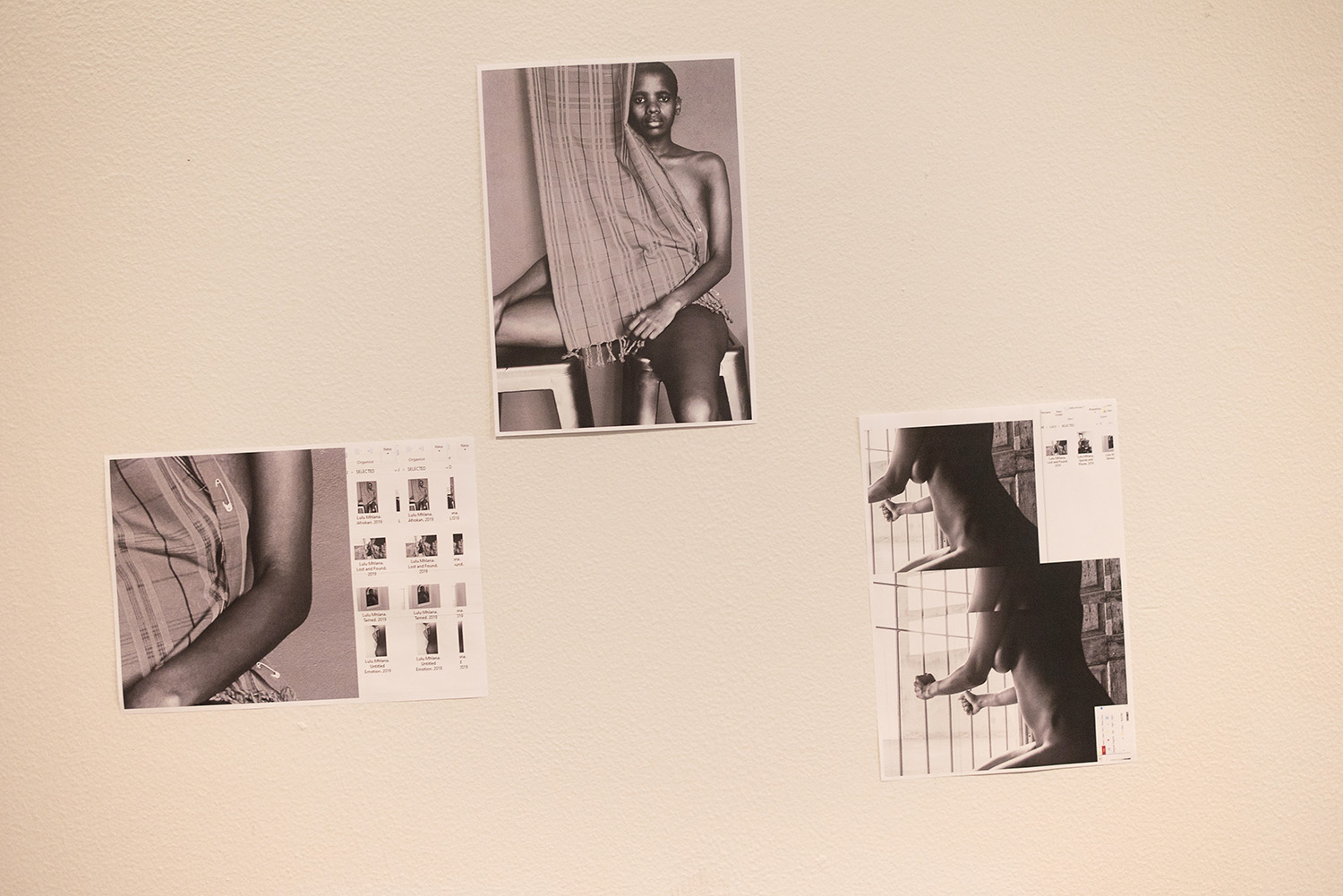
Each of the activated spaces was ‘mapped’ out through spatial diagrams. The auditorium featured a panel discussion while the ‘Red’ and ‘Yellow’ rooms were used to exhibit works. Diona Stevic Marinko’s ‘found-footage’ video piece (with audio by Wesley Ayliffe) juxtaposes dominant representations of hyper-masculinity and hyper-femininity to explore how gender contributes in decoding of symbols in media. Artist Vusi Beaucamp has aimed to generate social commentary throughout the last twelve years of his career. Elijah Ndoumbé is a multidisciplinary artist who aims to challenge the dominant narrative around the pathologization of members in their community while engaging radical imagination. Performance artist Kopano Maroga’s photographic collaboration explores questions of ambiguity in relationship to a Queer African aesthetic and identity.
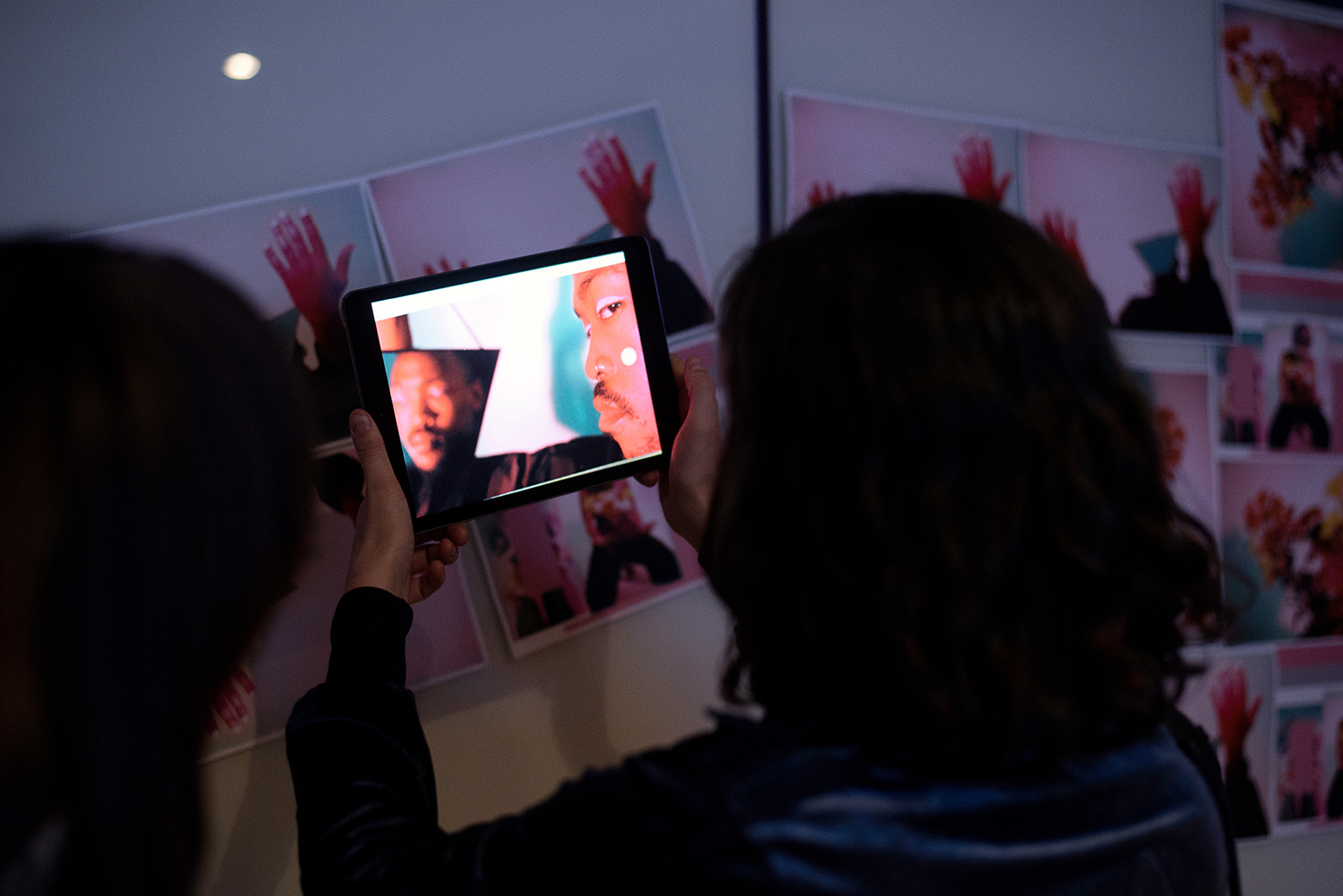
Similarly, Tazme Pillay and Elliot Naude’s Dancing With Mary began as an exploration into the sexual power dynamics of the queer scene in Cape Town. The perceived polarities between ‘effeminate’ and ‘masculine’ entities and socially ascribed power dynamics of dominance are interrogated in the work. In Men who lust after me but only in the red glow of the darkroom. Never in the sun lit spaces of normalized daily life. Men who search for a moment of intimacy but are only able to satisfy the craving through lust, Pillay describes how, “in these spaces, the femme body becomes an object of curiosity and desire; and it is through being desired that this body achieves a sense of power”. The title has a religious undertone, making reference to the controversial and contested biblical figure, Mary Magdalene. “In this instance, her history gives way to the assumptions of others; her body becomes public commodity by becoming intrinsic with an act of radical intimacy that paints her as both Saint and harlot, but which may have never been her doing in the first place”.
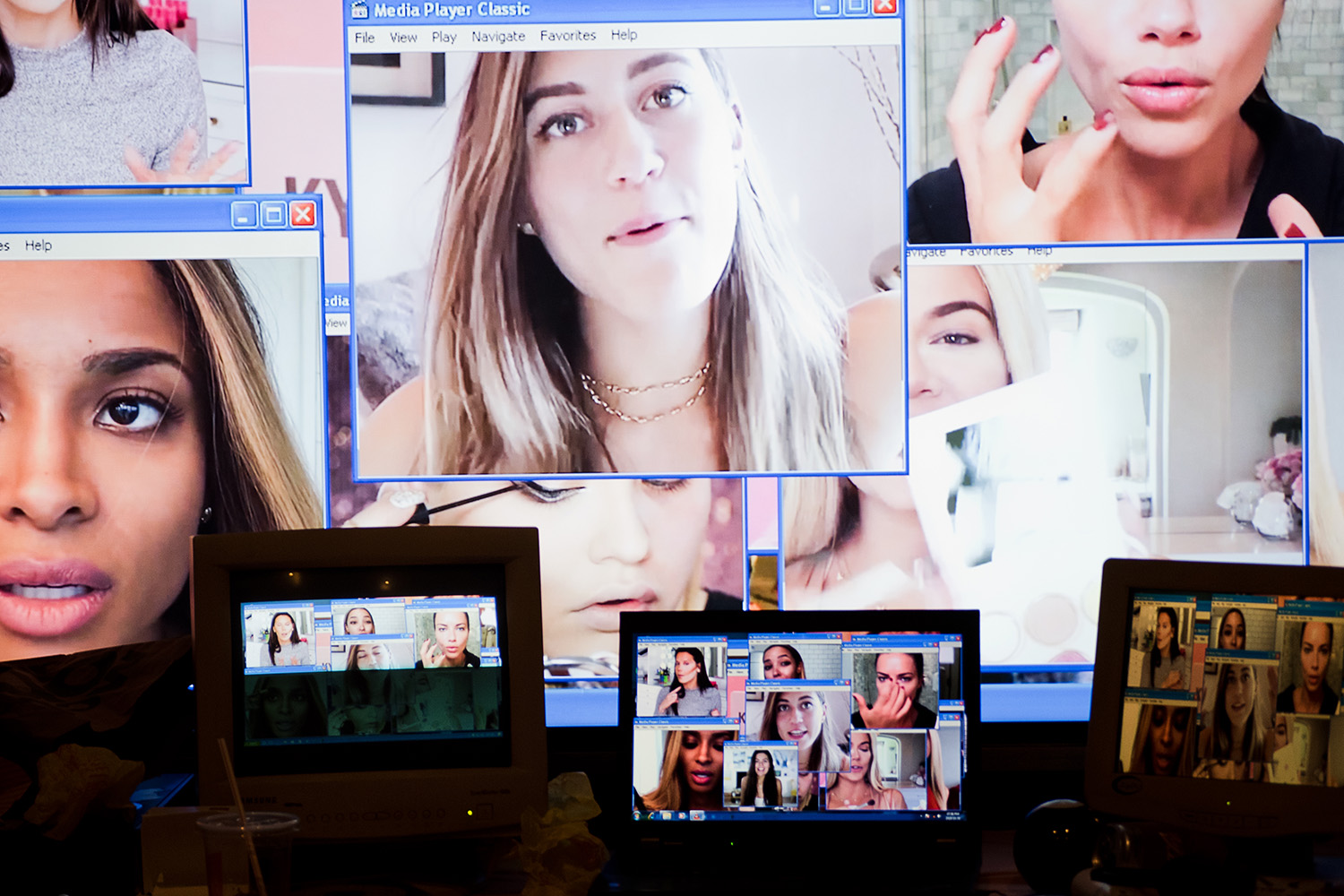
In addition, the performative piece, Tannie, asseblief is another kind of critique of patriarchy within the church. Clad in a conservative gown, Nina Erasmus wanted to “embody the personality of a judgy church lady. The one who has a good relationship with the pastor of her church, her prayers are the most potent and her milktart the love of God Himself”. While drawing on her experience as a pastor’s child, she reflects that, “these women are lost too. They started out lost. The patriarchy of the church can only give them so much. They had to give up the essence of themselves to live in that way. That woman had to shed herself of the fabricated duties so she can heal her inner child and move on. Some never do”. The culmination of workshops, discussions, performances and exhibit weave together contemporary themes that interrogate and subvert the dialogue around gender and the digital space. IN: DIALOG will continue in its venture to platform difficult topics, “We want to create momentary spaces where there is play, learning, unlearning, collaboration, art & discussion leading each guest into place with a sense of hope for futures in Africa by showcasing that which is already underway”.
